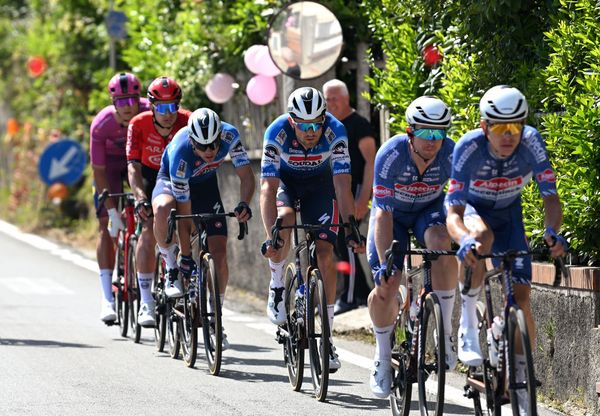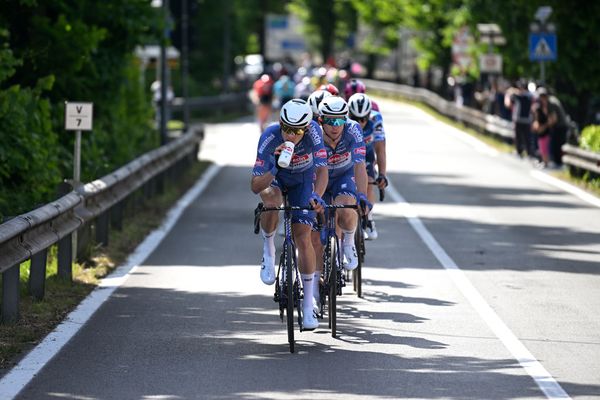A guide to the Glasgow World Championships
Almost every discipline of cycling comes together in Scotland
Matilda Price
Racing News Editor
© Velo Collection (TDW) / Getty Images
More than 200 rainbow jerseys will be won in Glasgow
This summer, Glasgow, Scotland is hosting the first-ever combined UCI World Championships, bringing together almost every UCI-sanctioned discipline for one big super event this August. From road racing to artistic cycling, more than 200 rainbow jerseys will be given out in 13 different disciplines across the 11 days of action in and around Glasgow.
The combined Worlds are a new initiative from the sport’s governing body, the UCI, and are set to take place every four years, with normal, separate World Championships carrying on as usual in the intervening years.
With so much going on, it can be hard to get your head around, so we’ve put together a handy guide of all the different events taking place in Glasgow. Unsure on the different track races, never heard of cycle-ball? Don’t worry, we’ve got you covered. And with live coverage available on GCN+ every day from all across the Worlds, this could be the time to discover something new.
Road
Where: Edinburgh, Stirling, Loch Lomond and Glasgow
When: August 5-6 and 8-13
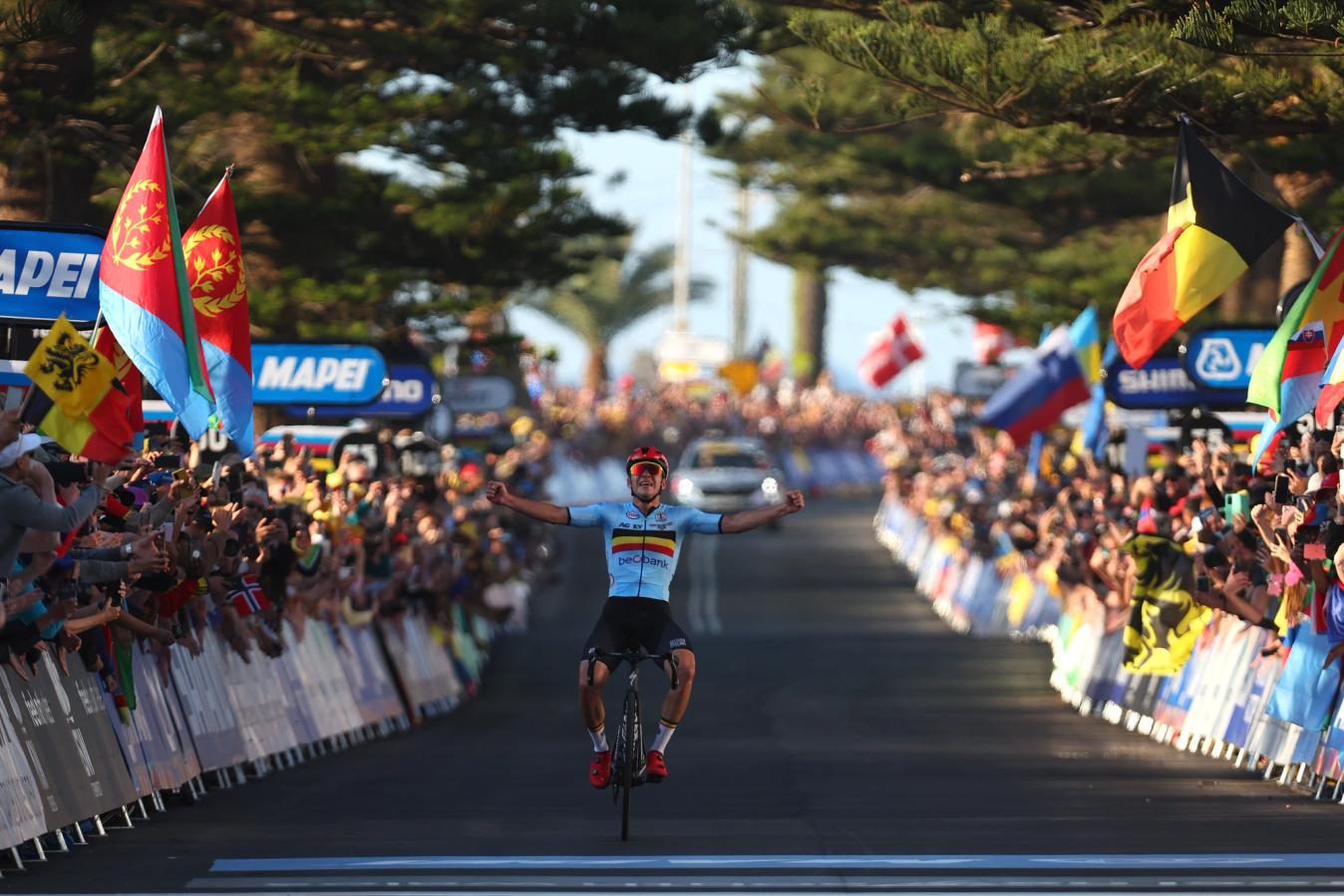
© Velo Collection (TDW) / Getty Images
Remco Evenepoel (Belgium) is the defending elite men’s road race champion
Probably the most familiar discipline to many of you, road cycling will be the main event at the World Championships, with the elite road races headlining the two weekends. Typically, the Worlds road races are long tests - this year the men will take on 270km, and the women 154km. In Glasgow, the road races are starting in various locations outside of Glasgow, before heading into the city to take on a tricky finishing circuit. The elite races will be the biggest races, but there are also races for junior men and women, and under-23 men (there’s no separate under-23 women’s race yet, but the title is awarded to the best-placed U23 rider in the elite race).
As well as the road races, the elites, U23s and juniors will race against the clock to become the new time trial world champions. Like the road races, these are usually on the longer side: almost 50km for the men this year, and 36km for the women. For the under-23 women, it’s similar to the road race, in that the champion goes to the best-placed U23 rider, rather than being a separate event - that’s coming in 2025. There’s also a team relay, brought in in 2019 to replace the trade team time trial, which sees national teams of six riders complete a two-leg team time trial: first a team of three women race half the course, then three men do the second half, and the fastest total time wins.
It’s important to note that the Worlds are raced in national teams, rather than trade teams, so expect to see a very different-looking set of jerseys. Team sizes are determined based on the nation’s world rankings, which can lead to big WorldTour stars only having a small team around them if they are from a smaller cycling nation.
There is also a road programme for para-cyclists, which includes road races, time trials and a mixed team relay for athletes using everything from road bikes and tandems, to trikes and handcycles. These events include athletes with cerebral palsy, visual impairments, and a wide range of physical disabilities and impairments. The classifications come under C1-5, for riders who have a physical impairment but still use a ‘standard bicycle’, H1-5 for athletes who use handbikes, T for those who use a tricycle that provides extra balance, and B or TCB for visually impaired riders who ride a tandem with a sighted partner. The numbers describe the severity of the impairment - with 1 being the most severe - and events will often feature riders in different numbered categories, with a winner for each category.
Track
Where: Sir Chris Hoy Velodrome, Glasgow
When: August 3-9
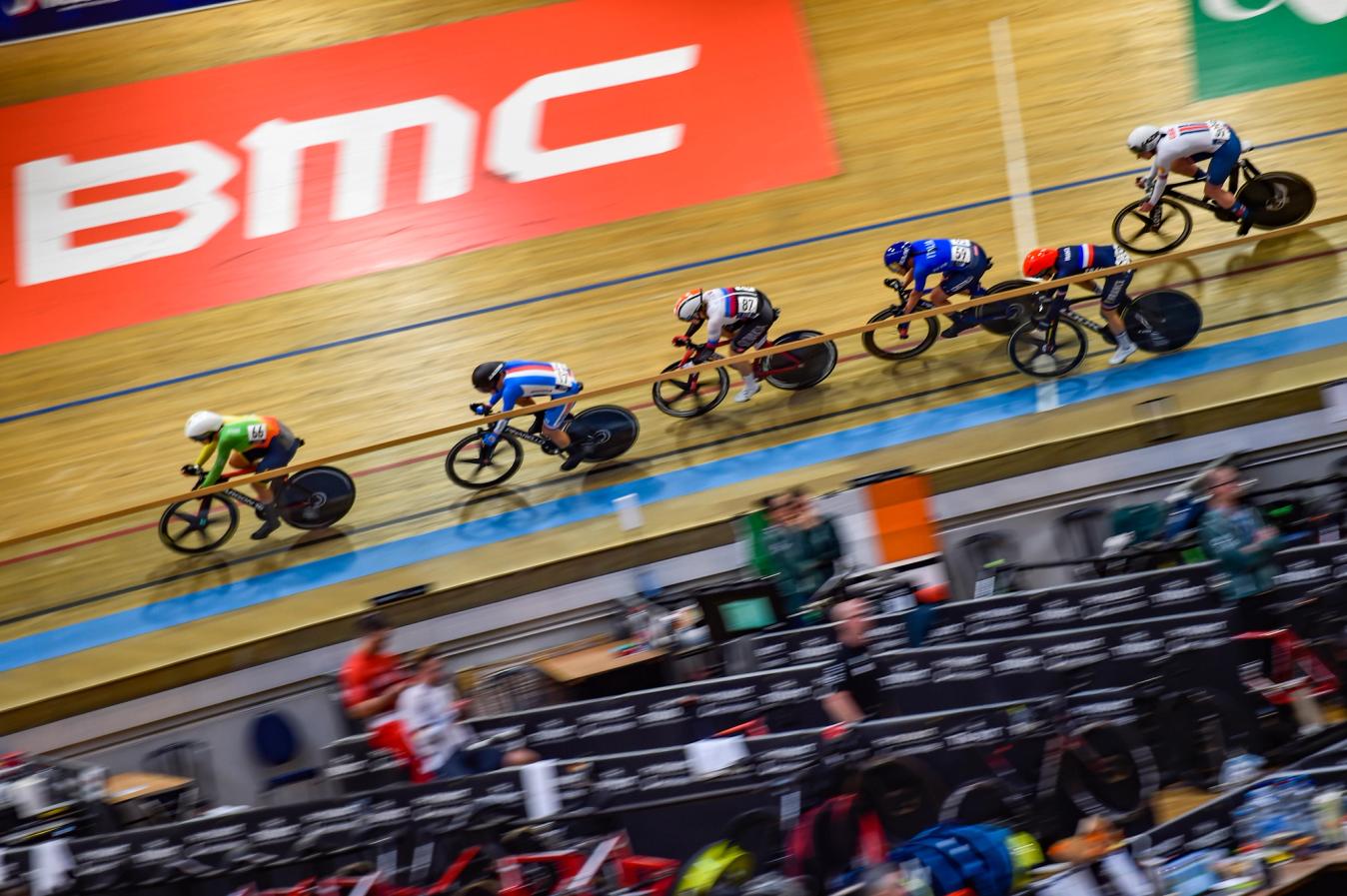
© Bettiniphoto
The Sir Chris Hoy Velodrome will host a week of fast and furious track racing
The track cycling World Championships cover a broad range of events - slightly more than at the Olympics - and are raced by only elite riders, with U23 and junior Worlds taking place separately. The events are split into two categories, sprint and endurance. Sessions take place in the afternoons and evenings, with a mixture of qualification races and the finals, where the medals will be won.
The sprint events are just that: races where it’s all about pure power and speed over very short distances. At Worlds, the sprint events are: the sprint, a two-rider head-to-head to win at the end of three laps; the team sprint, where a team of three riders set a time over three laps: the 1km (men) or 500m (women) time trial; and the keirin, a bunch race where the riders are paced by a motorbike, before racing for the line. Sprint riders are powerful machines, it’s all about putting as much power through your legs as possible - these big riders wouldn’t fare well on the road.
Endurance, on the other hand, sees more crossover with road riders, with the likes of Lotte Kopecky, Filippo Ganna and Elisa Balsamo all champions in the velodrome, too. These races are longer, and can be more tactical than just going the fastest. The endurance events at this year’s Worlds are: the individual pursuit, a 4km (men) or 3km (women) solo time trial; the team pursuit, a 4km test raced by teams of four; the points race, which is a 160 (men) or 100 (women) lap race where riders try to rack up points by winning lap sprints; the madison, essentially a points race but raced in pairs; the scratch, a 15km (men) or 10km (women) mass start race where the first across the line in the final lap wins; the elimination, where the last rider is eliminated each lap; and the omnium, a multi-race event where riders gain points in a scratch, tempo, elimination and points race in order to be named the overall champion.
This year’s Worlds also integrate para-cycling on the track. The para-athletes tackle a slightly reduced programme, taking on the sprint, team and tandem sprint, time trial, individual pursuit, scratch and omnium. There are different events for athletes with different impairments, so you’ll see B1-3, which refers to athletes with visual impairments - they ride on a tandem, with a sighted ‘pilot’ - and C1-5, which refers to physical impairments. The lower the number, the less function that rider has.
Mountain biking
Where: Fort William (downhill) and Glentress Forest (cross-country, marathon)
When: August 3-5 (downhill), August 8-12 (cross-country and e-MTB), August 6 (marathon)
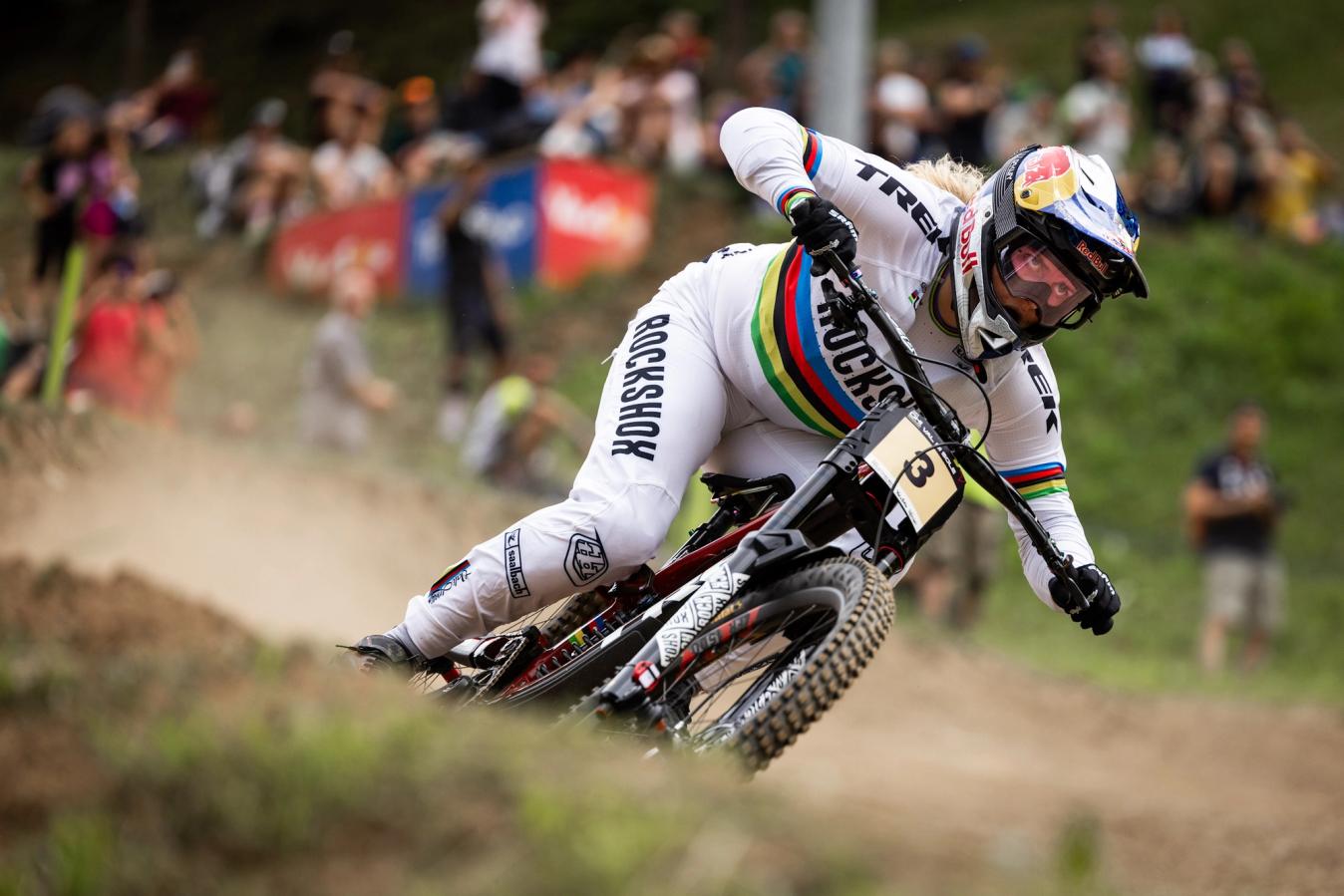
© Velo Collection (TDW) / Getty Images
Vali Höll will try to defend her downhill rainbow jersey in Scotland
The mountain biking at the Glasgow Worlds falls into two categories: downhill and cross-country. Downhill is the fast, thrilling against-the-clock challenge that the likes of Rachel Atherton and Loïc Bruni compete in, whilst cross-country is the more road-adjacent discipline, raced on longer, flatter courses where you’ll see Mathieu van der Poel and Pauline Ferrand-Prévot in action.
Downhill is simple, as it’s just one format. Riders go down the mountain course individually, trying to set the fastest time, and that’s it. At Worlds, there’s one qualifying round for all selected riders, and then the fastest riders will progress to the final. There are two age categories, juniors and elites, split into men’s and women’s. This year, Worlds will take place at Fort William, an iconic and challenging downhill track in the Nevis Range.
Cross-country is split into several disciplines: cross-country Olympic, short track, marathon, e-MTB, and the relay, which are raced by elite, under-23 and junior riders. Cross-country is the main event, a 90-minute race around a track that usually measures 2-4km in length, and features lots of different challenges, from rock gardens and climbs to big drop-offs and berms. There’s also an event where riders take this course on an e-bike, which is what we’ve seen Peter Sagan compete in over recent years. Short track is a shortened version of the Olympic-distance race, taking in a cut-down course and lasting only around 20 minutes. Marathon is the opposite: an A-to-B race that is usually over 100km in length, a test of endurance more than skill. There’s also the mountain bike relay, where nations compete in teams of six, doing a lap each to try and set the fastest time on the XCO track.
BMX
Where: Glasgow Green (freestyle) and Glasgow BMX Centre (racing)
When: August 5-10 (freestyle), August 6-13 (racing)
There are two different types of BMX competitions: racing and freestyle. Racing is what it sounds like, short races over dedicated BMX tracks - featuring high-speed turns, jumps and an undulating surface - where the aim is to cross the finish line first. The races are super fast, usually lasting around 30-40 seconds. Eight riders race at a time - meaning space on the track is tight - and riders progress from round 1, to qualifying, to the final.
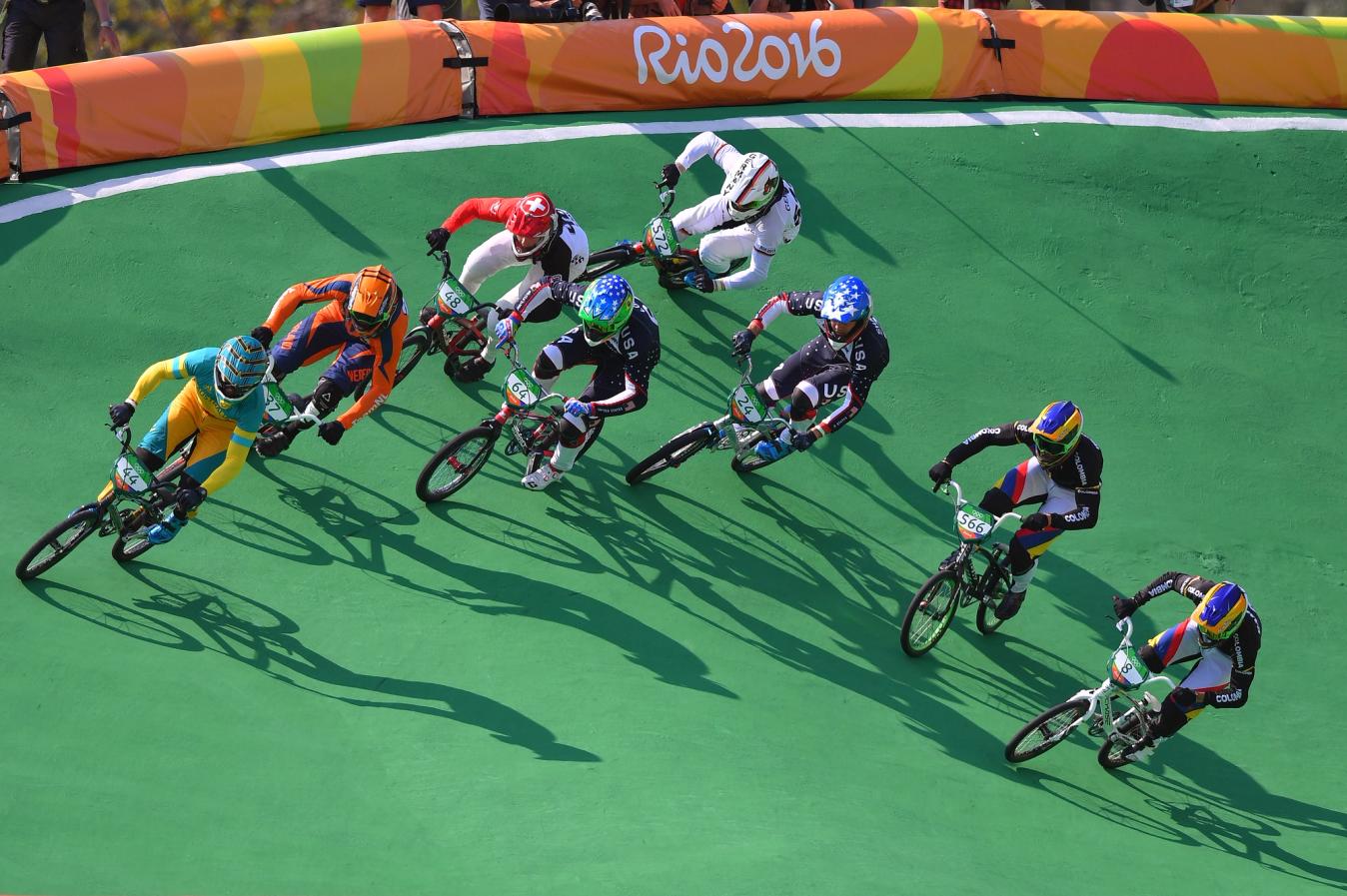
© Velo Collection (TDW) / Getty Images
BMX racing is a super fast, super exciting discipline
Freestyle is a very different sport, linked only to racing by the fact that both events use a BMX bike. In freestyle, it’s all about tricks and skills, and riders are judged and given a score for their routine, highest winning. There are two different categories of freestyle BMX: flatland, which takes place on a flat surface with no obstacles; and park, where riders use a skatepark-style rink, with ramps, bowls and walls, to put together a routine. The disciplines look very different, but both require a huge amount of skill, precision and technical ability.
Trials
Where: Glasgow Green, Glasgow
When: August 9-12
Trials is a fairly niche discipline, and it’s basically an obstacle course on a bike. It’s all about skill, precision and control as riders hop, jump and wheel their way across through the course made of man-made obstacles, ramps and boulders. The aim is to get through each section without putting your feet on the ground to secure a ‘clean’ run and maximum points, with points deducted for mistakes. There are competitions for men and women (elite and junior) and a teams competition.
It’s also important to note that trials riders can compete on two different types of bikes: ones with 20-inch wheels, which offer more control; and ones with 26-inch wheels, which give riders more speed - there are separate champions for each. The bikes look something like a combination of a mountain bike and a BMX, with strong brakes, a wide handlebar set-up, no saddle, and usually low tyre pressure.
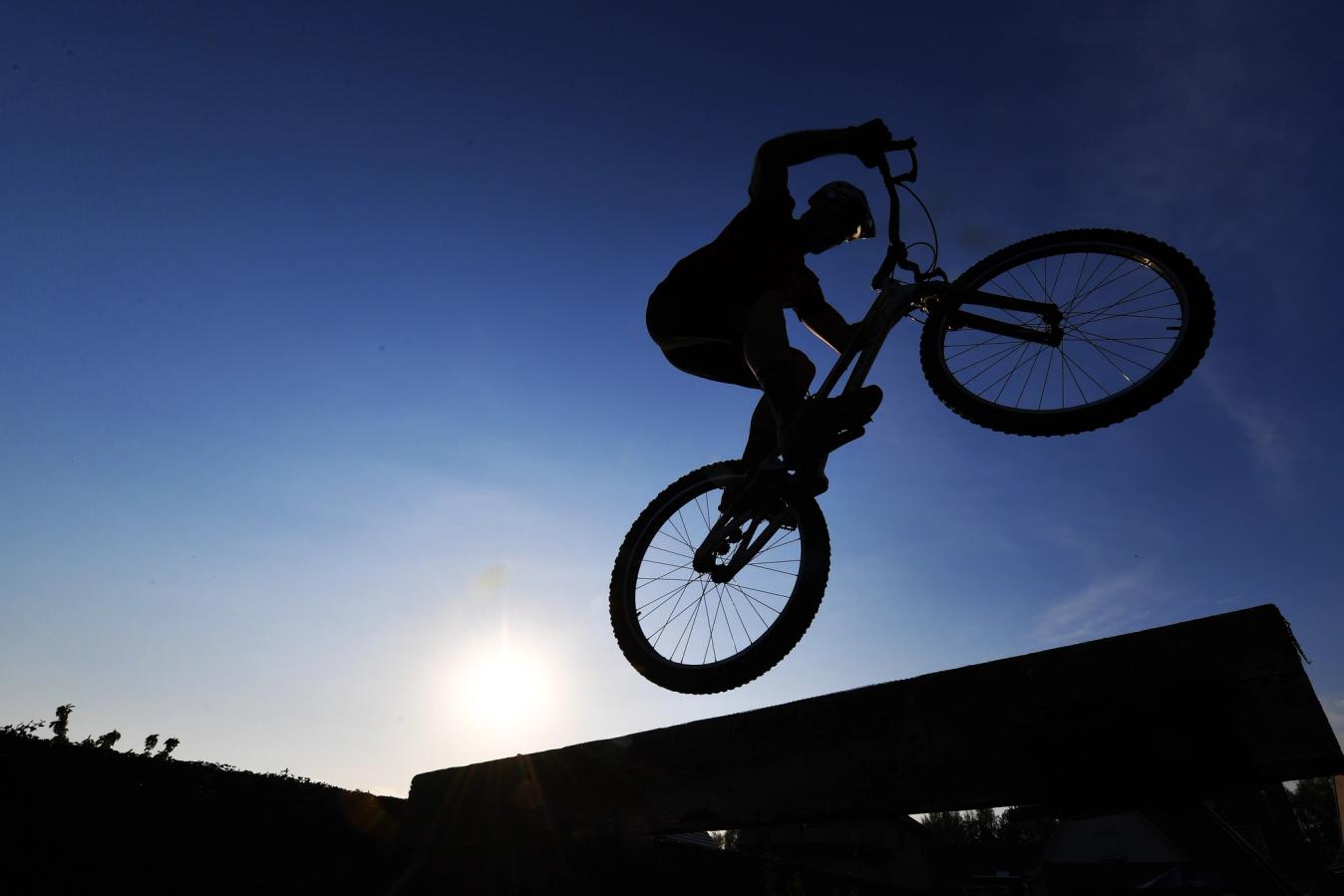
© Velo Collection (TDW) / Getty Images
Trials is all about controlling your bike to a very high standard
Trials is all about controlling your bike to a very high standard. Photo: © Velo Collection (TDW) / Getty Images
Indoor cycling
Where: Emirates Arena, Glasgow
When: August 11-13
Indoor cycling is perhaps the most unusual category in this guide, and combines two disciplines: artistic cycling and cycle-ball. Artistic cycling is a similar competition to gymnastics, if you can imagine that. Riders - and there are competitions for individuals, pairs and teams of four - put together a five-minute routine, set to music, where they show off different tricks and artistic moves on specially-adapted bicycles. These aren’t flips or jumps, but very skilful demonstrations of riding a bike in creative and dance-like ways. A panel of judges awards points based on variety, difficulty and execution, and the highest-scoring routine wins.
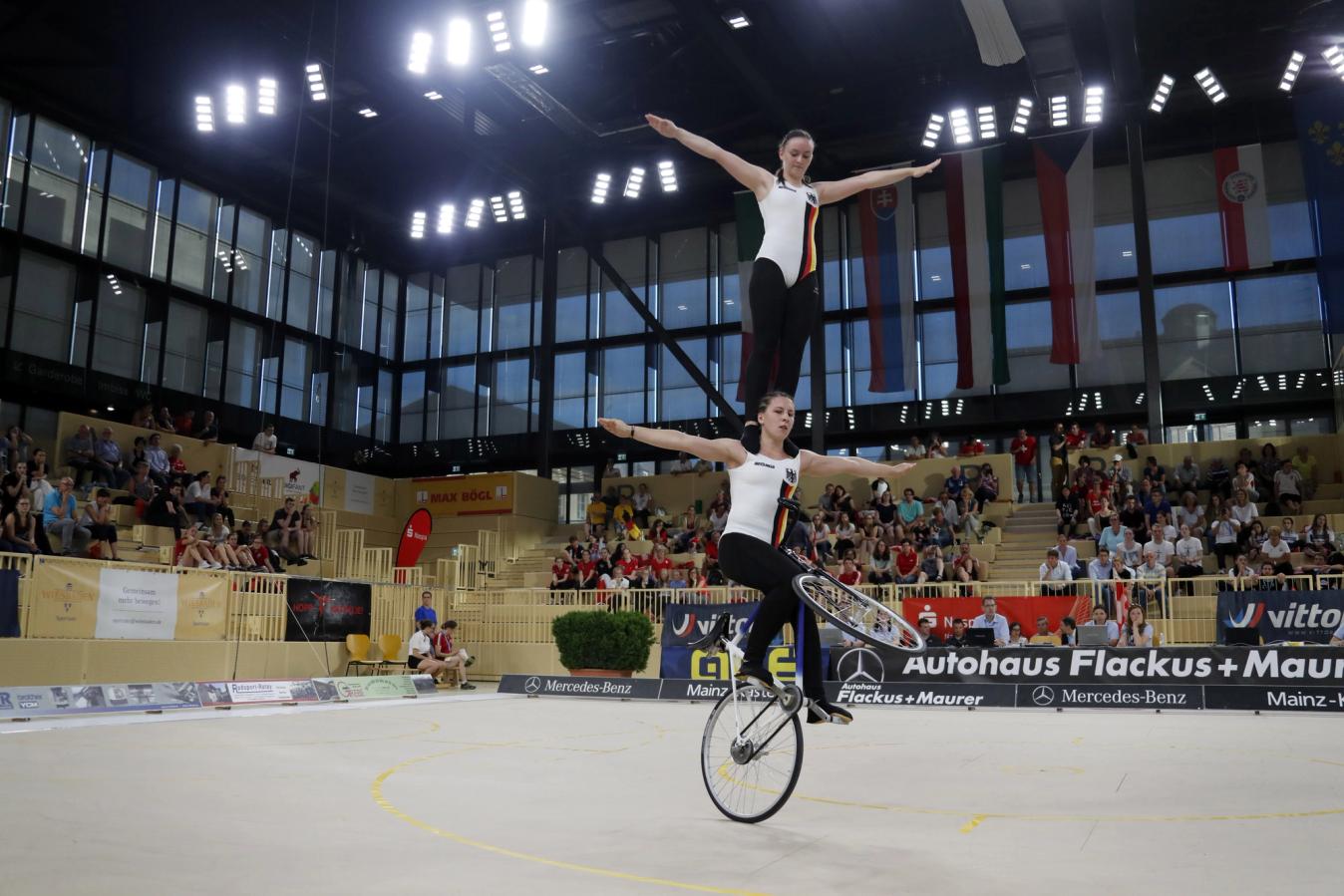
© Bettiniphoto
Artistic cycling sees competitors push the limits of what you can do with a bicycle
Cycle-ball is what it sounds like: a football game, played on bikes. Again, riders use specially-adapted bikes for this, and control the ball using their front wheel. Teams are just two-a-side, and they play 14-minute matches, trying to score as many goals as possible. Headers are allowed, and you can use your hands in goal, but you have to keep your feet on the pedals - you have to leave the pitch and re-enter if you touch the ground.
Gran Fondo
Where: Perth and Kinross (road race), Dundee and Angus (time trial)
When: August 4 (road race), August 7 (time trial)
A gran fondo - similar to a sportive - is a mass participation race which is open to all, including club riders and amateurs. These take place all over the world throughout the year, and the top 25% of riders from 27 qualifying events are invited to take place in the World Championships. Some will be racing for the win, but for others, this is just an extra-special gran fondo where they’re just looking to set a good time. All the genders start together, with winners awarded in different age and gender categories, and in Glasgow there will be two road races - a gran fondo and a shorter ‘medio fondo’ - plus an individual time trial.
We’ll be showing live and on-demand coverage of all the different disciplines across the Glasgow World Championships. Head over to GCN+ to check out the schedule and broadcast start times so you don’t miss a minute of the action. As always, territory restrictions will apply.
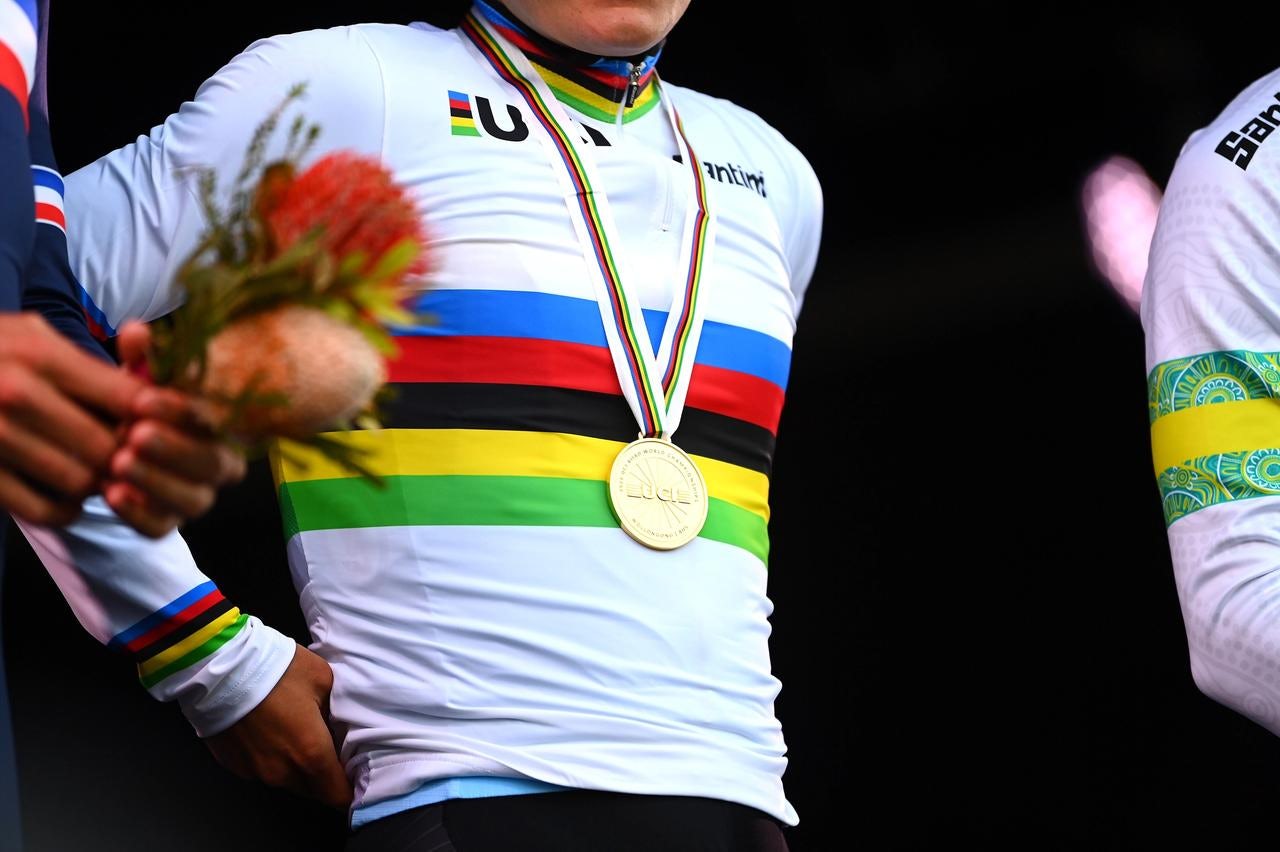





.jpeg?w=600&auto=format)
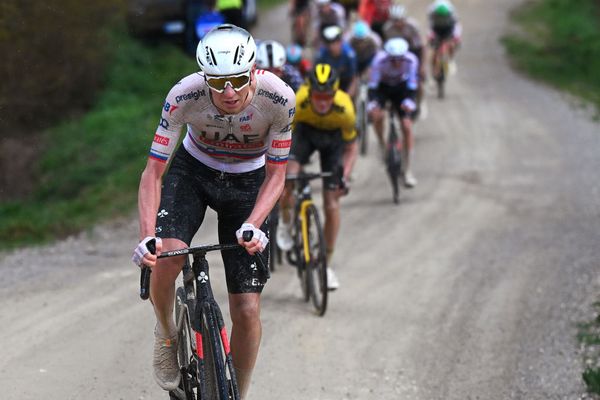
.jpg?w=600&auto=format)
